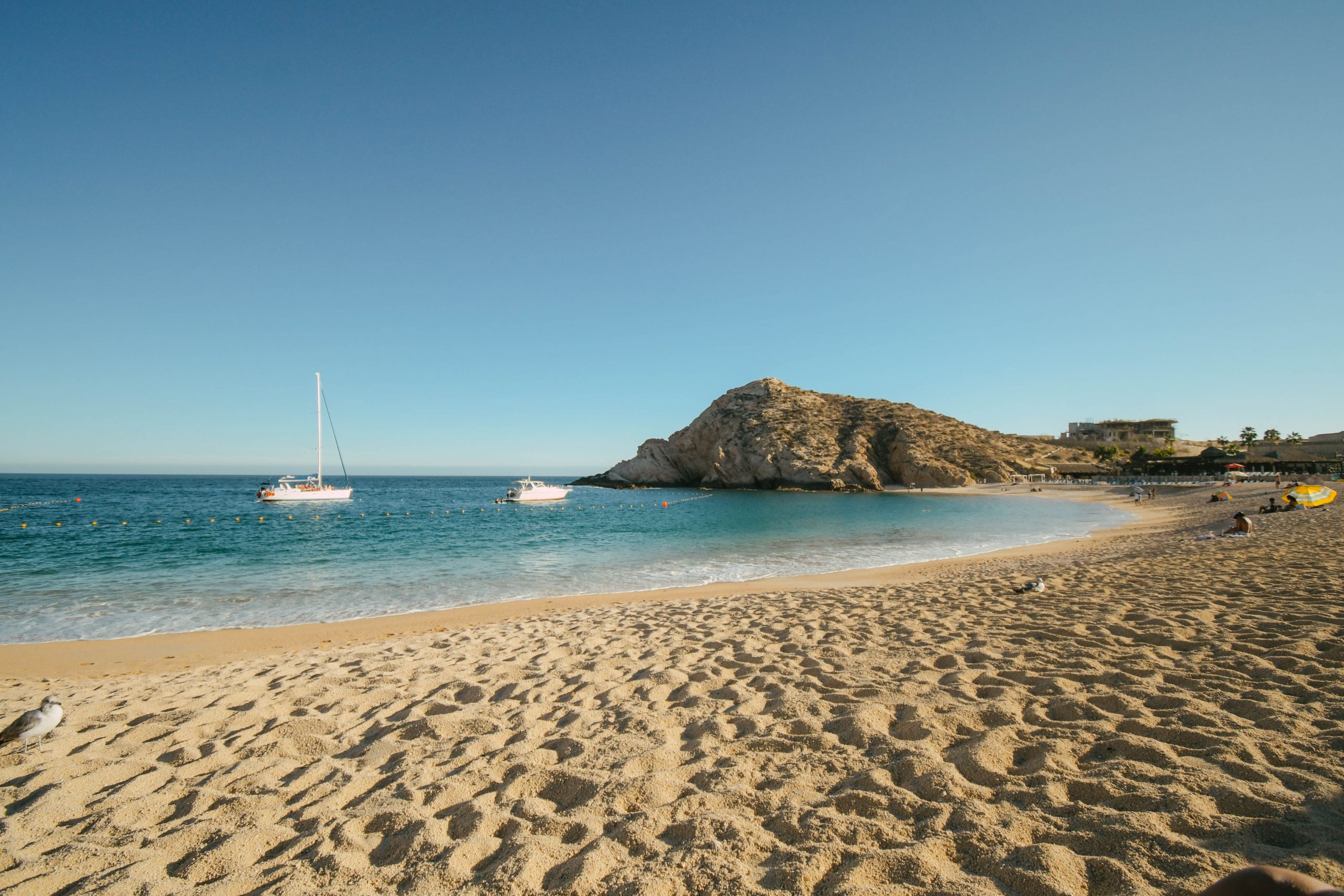It would be hard to argue that the COVID-19 pandemic has been anything but devastating for international travel and tourism—a sector that, of course, relies on the free movement of people and goods, and the desire of humans to explore and connect. The impact has been magnified many times over in the local economies that rely most on visitors, particularly coastal and island communities[1]. Small businesses (which make up 80 percent or more of the tourism industry) have also been disproportionately affected, without the resources or capacity to ‘ride out’ the drop in income, or pivot to new markets. Yet there were also reports of overtourism in some coastal resorts, such as in the United Kingdom and United States, where a large domestic market, unable to travel abroad, brought a different set of challenges for local communities[2].
During the global lockdowns, there was much talk of the need, and opportunity, to build back better. But this is simply a hashtag and empty platitude unless we are clear on what ‘better’ means, and unless we create a path for that change. Otherwise we risk slipping back to old business models which served both communities and businesses poorly. Worse still, the pandemic could exacerbate all that was fragile in that broken system—for instance, single-use plastic is up[3], there is a skills shortage and intense financial pressures could lead to a ‘race to the bottom’.
However, I do believe we have a genuine, once-in-a-generation opportunity to reset. Why do I say this? Because the signs are it may actually be harder to return to old models than to adapt, and those who adapt soonest are likely to benefit the most as tourism recovers. Many drivers for change that were already setting the direction of travel before COVID have now been supercharged.
For instance, money talks, and according to Deloitte, investor and shareholder priorities are becoming the ‘number one driver’ for a transition to a fairer and more sustainable tourism economy, and we are approaching a tipping point[4]. And the Organisation for Economic Co-operation and Development (OECD) has shown that many governments have included ‘green’ recovery measures in their recovery stimulus packages designed to address the short- and medium-term socioeconomic impacts of the pandemic, with stipulations for bolstering equity, environmental protection and progress towards the Sustainable Development Goals[5]. Companies are also building good stakeholder relationships to demonstrate to investors and stakeholders that these external risk factors are being well managed.
It is also clear that consumer attitudes have strengthened towards sustainable approaches to travel and tourism. Recently two large consumer surveys from online booking giants Expedia and Booking.com both showed similar results—concluding that this is a potential watershed moment for sustainable travel. The Booking.com survey showed that 71 percent of global travellers report a desire to travel more sustainably in the coming 12 months, up 10 percent from the previous year[6]. Of course, we should be sceptical of what people say in surveys, but there is also evidence that this is more than good intentions. Since Google Flights began its carbon labelling of trips, it is already seeing signs of behaviour change[7].
Employees are not immune to this attitude shift which accelerated during the pandemic. I have personally seen such a shift in boardrooms (no doubt reinforced by the investor and consumer pressures outlined above), which are challenging their staff to be more ambitious in their sustainability targets. And evidence shows that younger generations are increasingly looking for employers that share their beliefs and offer a purpose-led mission[8], and environmentally focused travel companies recruit ‘the best’[9].
The pandemic also meant that many communities reclaimed their towns and villages from the visitor crowds. The ‘pause’ gave them time to reflect on the impacts of tourism, both good and bad, and some are now questioning whether they want tourism to return as before. For instance, in the Tahoe region (U.S. states of California and Nevada), a recent community report showed that residents cited the same issues to improve quality of life, all of which have connections to tourism: housing, transportation, tourism management, community infrastructure, short-term lets and charges on tourists[10]. The Travel Foundation is now working with Tahoe region and its community, which is seeking a new approach to manage tourism. Tahoe is not an outlier. With no business as usual, it is easier to imagine (and propose) the alternatives, and many progressive strategies have emerged from destinations during the pandemic[11]. Sometimes even the governance model for tourism in a destination has been questioned, as happened when the destination management organisation (DMO) Tourism Vancouver Island (TVI) announced it was becoming 4VI and adopting a social enterprise model[12].
Important shifts also occurred in the policy landscape during the pandemic, as tourism rocketed up the political agenda. This demonstrated the radical collaboration that is possible between public and private sectors through tourism task forces and joint initiatives, such as efforts to stimulate domestic tourism[13]. The European Commission signalled that, in response to the impact of the pandemic, the tourism sector would be the first to work on an EU Transition Pathway. Amongst other things, the subsequent report highlights the need for shared benchmarks for environmental footprints of tourism products and services, as well as a code of conduct for digital data sharing, skills partnerships and common guidance for destinations on climate action plans[14]. It is also hugely significant that the Glasgow Declaration for Climate Action in Tourism was launched at COP26 in November 2021. This UN-backed initiative was the first major tourism-wide attempt to align a sector that previously had been slow to act on climate change, with a few notable exceptions. The Travel Foundation is now working with the UN World Tourism Organization to build on the momentum of the Glasgow Declaration, which commits organisations (businesses and destinations) to publish a climate action plan and report annually on progress. More than 500 organisations have now signed, including household names[15].
Visitor flows were managed in a way that would have been unthinkable pre-COVID, with restrictions around arrivals, limited capacity of attractions due to social distancing and a new requirement to book ahead or reserve. Without international visitors to market to, and with severe disruption on the supply side, DMOs focused more than ever on the needs of local businesses, attractions and residents. As tourism opens up again, it has an opportunity to do so strategically, investing in positive-impact businesses and innovation[16]. Those responsible for managing tourism and its impacts are now emphasising the need for resilience, which means avoiding overdependence on any single market (and appreciating and optimising the value of the domestic market), building diverse local supply chains and managing resources carefully.
Also during the pandemic, we formed the Future of Tourism Coalition with five other global tourism non-governmental organisations: the Center for Responsible Travel, Green Destinations, Tourism Cares, Sustainable Tourism International and the Destination Stewardship Center. As a direct response to the hollow (if well-meaning) ‘build back better’ rhetoric ubiquitous in the early months of lockdown, we published 13 guiding principles for the future of tourism, which place community and destination needs at the centre of tourism management and development[17]. There are real opportunities to achieve this vision but also many challenges ahead. We need to move quickly to innovate and demonstrate how we can build a better kind of tourism.
The new model needs three things. First, the tourism industry requires a fundamentally different mandate—taking destination management out of its tourism silo and joining up with fellow ‘placemakers’ (event organisers, retailers, marine park managers, planning, enterprise agencies, public utilities, etc.). We must ensure that the voices of residents are taken into account, and develop the new funding and skills urgently needed to manage tourism in the 21st century. We are collaborating with Cornell University to address the skills gap through a new online course on destination management[18].
Second, the industry needs more sophisticated measures of success. We must move away from the unbalanced focus on volume, based on visitor numbers, overnight stays and spend. The Travel Foundation is piloting new ways of measuring and optimising the benefits and reducing the burdens of tourism on destinations, and also working with DMOs to help them bring climate impacts into the equation.
Third, we need more private collaboration and innovation if we are to rise to the challenges ahead. Increasingly, commercial and destination priorities will align. For instance, we are working with Visit Scotland and the country’s biggest inbound tour operator, the Travel Corporation, to find new solutions to decarbonise the tourism supply chain. For the Travel Corporation, these ‘Scope 3’ emissions can only be addressed at a destination-wide level. Another tour operator, easyJet holidays, is seeking a relationship with its top island (Tenerife, Spain) and coastal (Algarve, Portugal) destinations that is based on a stewardship approach, working with us and local stakeholders to identify and address the most significant impacts of tourism (not just the impacts of easyJet holidays) and collaborating on solutions.
Tourism will undoubtedly change quite radically over the course of this decade, and how the sector responds to the big issues of climate and equity will define its future. How can we ensure a fair transition to a low-carbon economy? How can we shift resources to where they are needed most, in particular the Global South? How will we shift the balance so that tourism isn’t something that is done to communities but with them? We might not always know how, but we do know that the time for change is now.
—–
[1] UN Conference on Trade and Development (OECD), “Small Island Developing States Face Uphill Battle in COVID-19 Recovery,” 10 June 2021, https://unctad.org/news/small-island-developing-states-face-uphill-battle-covid-19-recovery.
[2] F. Street, “UK Destinations Take Steps to Avoid Tourist Pandemonium,” CNN, 6 March 2021, https://edition.cnn.com/travel/article/uk-destinations-tourism-return/index.html.
[3] Aviva, “Two-Thirds of UK Adults Feel Green Guilt,” 28 March 2022, https://www.aviva.com/newsroom/news-releases/2022/03/two-thirds-of-uk-adults-feel-green-guilt/.
[4] I. Taylor, “Investors Driving Travel towards ‘Tipping Point’ on Sustainability,” Travel Weekly, 3 March 2022, https://travelweekly.co.uk/news/air/investors-driving-travel-towards-tipping-point-on-sustainability.
[5] OECD, “Making the Green Recovery Work for Jobs, Income and Growth,” policy brief, 6 October 2020, https://www.oecd.org/coronavirus/policy-responses/making-the-green-recovery-work-for-jobs-income-and-growth-a505f3e7/.
[6] Booking.com, Sustainable Travel Report 2022, https://globalnews.booking.com/download/1161485/booking.comsustainabletravelreport2022final.pdf; Expedia Group, “Sustainable Travel Study,” https://info.advertising.expedia.com/sustainability-study-2022.
[7] J. Hergenrader, “Mindfulness about the Environmental Impact of Tourism Is Changing How We Travel,” tripsaavy, 13 December 2021, https://www.tripsavvy.com/environmental-impact-of-tourism-how-we-travel-5212825.
[8] Deloitte, A Call for Accountability and Action, Deloitte Global 2021 Millennial and Gen Z Survey, https://www2.deloitte.com/content/dam/Deloitte/global/Documents/2021-deloitte-global-millennial-survey-report.pdf.
[9] H. Kemble, “Environmentally-Focused Companies Recruit ‘the Best,’” Travel Weekly, 20 May 2021, https://travelweekly.co.uk/news/tourism/environmentally-focused-companies-recruit-the-best.
[10] Tahoe Prosperity Center, Community Report for the Tahoe Region, March 2022, https://tahoeprosperity.org/wp-content/uploads/Tahoe-Community-Report_March-2022_Final.pdf.
[11] For example, Norway National Tourism Strategy 2030: Big Impact, Small Footprint, April 2021, https://assets.simpleviewcms.com/simpleview/image/upload/v1/clients/norway/Nasjonal_Reiselivsstrategi_engelsk_red_c59e62a4-6fd0-4a2e-aea1-5e1c6586ebc6.pdf; Travel Oregon, Oregon Tourism Commission 2021–2023 Strategic Rebuild Plan and Budget, 15 June 2021, https://industry.traveloregon.com/wp-content/uploads/2021/06/Rebuild-Plan_Final_Approved-6.15.21-1.pdf; Ministry of Business, Innovation and Employment (New Zealand), Destination Management Guidelines 2020, January 2020, https://www.mbie.govt.nz/assets/destination-management-guidelines-2020.pdf.
[12] Tourism Vancouver Island, “Tourism Vancouver Island Makes Industry-Leading Transition to 4VI: A Social Enterprise in Support of a Sustainable Future for Vancouver Island,” 13 April 2022, https://vancouverisland.travel/2022/04/13/4vi-announcement/.
[13] OECD, “Tourism Policy Responses to the Coronavirus (COVID-19),” 2 June 2020, https://www.oecd.org/coronavirus/policy-responses/tourism-policy-responses-to-the-coronavirus-covid-19-6466aa20/.
[14] Publications Office of the European Union, “Transition Pathway for Tourism,” 4 April 2022, https://op.europa.eu/en/publication-detail/-/publication/404a8144-8892-11ec-8c40-01aa75ed71a1.
[15] Tourism Climate Action, “Glasgow Declaration: A Commitment to a Decade of Climate Action,” 2021, https://www.oneplanetnetwork.org/programmes/sustainable-tourism/glasgow-declaration.
[16] B. Lynam, “Four Big Challenges We Face in 2021 to Build Back Better,” City Nation/Place, 18 March 2021, https://www.citynationplace.com/four-big-challenges-in-2021-to-build-back-better.
[17] Future of Tourism, “Guiding Principles,” https://www.futureoftourism.org/guiding-principles. The 13 guiding principles are
- See the whole picture;
- Use sustainability standards;
- Collaborate in destination management;
- Choose quality over quantity;
- Demand fair income distribution;
- Reduce tourism’s burden;
- Redefine economic success;
- Mitigate climate impacts;
- Close the loop on resources;
- Contain tourism’s land use;
- Diversify source markets;
- Protect sense of place; and
- Operate business responsibly.
[18] Travel Foundation, “Sustainable Management of Tourism Destinations Online Course,” https://www.thetravelfoundation.org.uk/destination_management_online_course/.


 Previous
Previous


